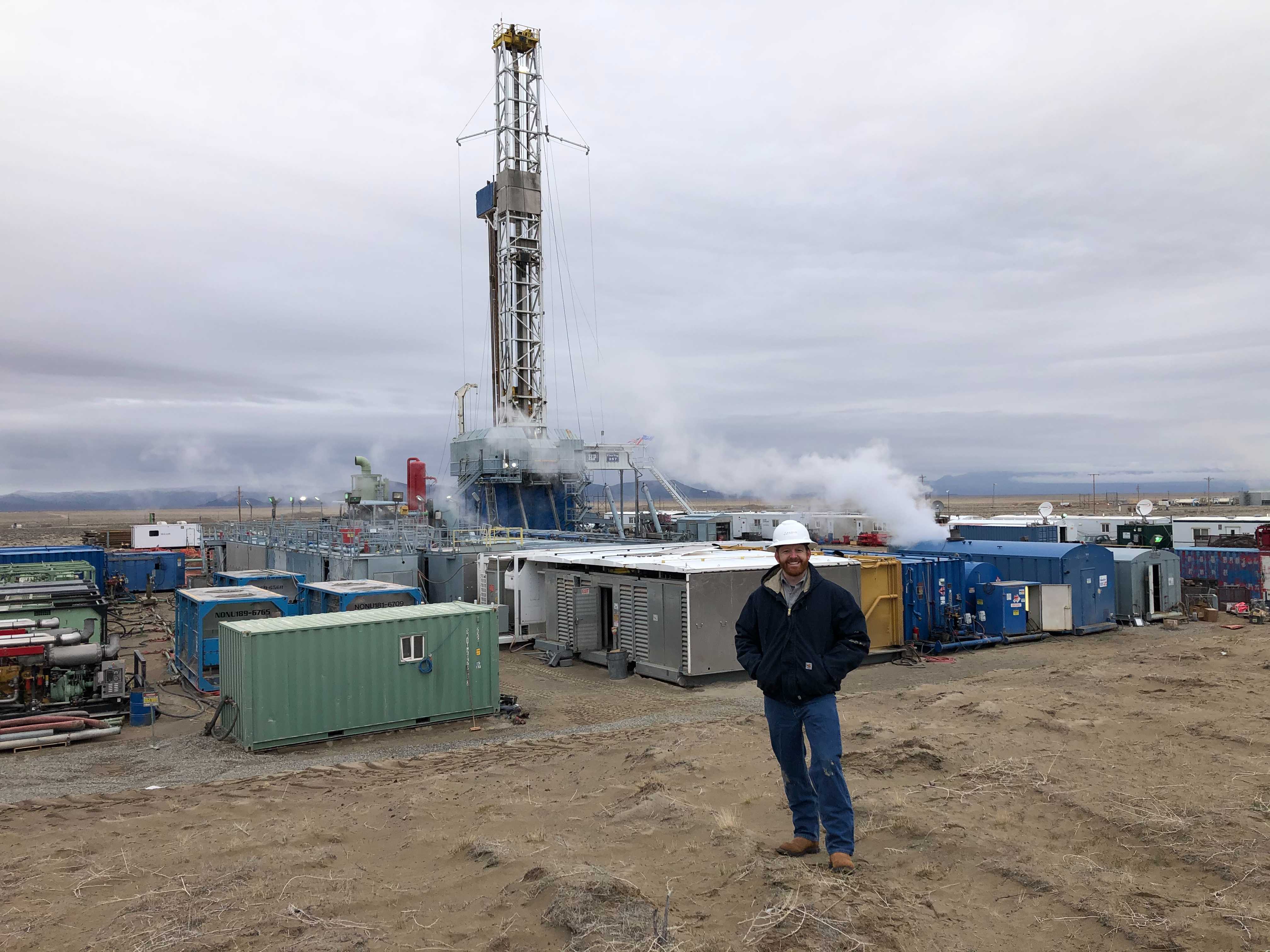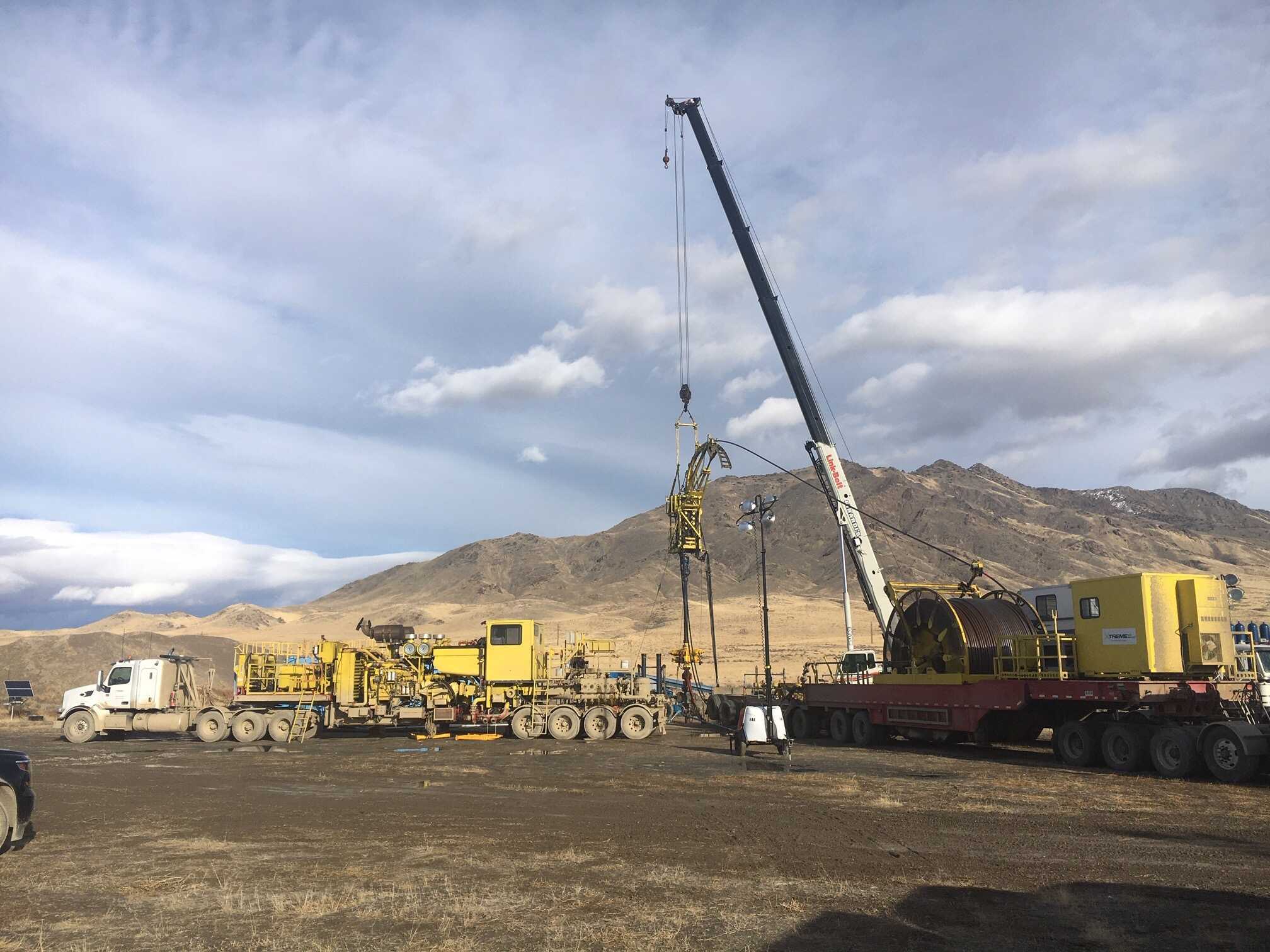Tapping the geothermal energy stored beneath the Earth’s surface as a way to generate renewable power is one of the new visions for the future that’s captured the attention of environmentalists and oil and gas engineers alike.
That’s because it’s not only a way to generate power that doesn’t rely on greenhouse gas emitting hydrocarbons, but because it uses the same skillsets and expertise that the oil and gas industry has been honing and refining for years.
At least that’s what drew former the former completion engineer (it’s not what it sounds like) Tim Latimer to the industry and to launch Fervo Energy, the Houston-based geothermal tech developer that’s picked up funding from none other than Bill Gates’ Breakthrough Energy Ventures (that fund… is so busy) and former eBay executive, Jeff Skoll’s Capricorn Investment Group.
With the new $28 million cash in hand Fervo’s planning on ramping up its projects which Latimer said would “bring on hundreds of megawatts of power in the next few years.”
Latimer got his first exposure to the environmental impact of power generation as a kid growing up in a small town outside of Waco, Texas near the Sandy Creek coal power plant, one of the last coal-powered plants to be built in the U.S.
Like many Texas kids, Latimer came from an oil family and got his first jobs in the oil and gas industry before realizing that the world was going to be switching to renewables and the oil industry — along with the friends and family he knew — could be left high and dry.
It’s one reason why he started working on Fervo, the entrepreneur said.
“What’s most important, from my perspective, since I started my career in the oil and gas industry is providing folks that are part of the energy transition on the fossil fuel side to work in the clean energy future,” Latimer said. “I’ve been able to go in and hire contractors and support folks that have been out of work or challenged because of the oil price crash… And I put them to work on our rigs.”

Fervo Energy chief executive, Tim Latimer, pictured in a hardhat at one fo the company’s development sites. Image Credit: Fervo Energy
When the Biden administration talks about finding jobs for employees in the hydrocarbon industry as part of the energy transition, this is exactly what they’re talking about.
And geothermal power is no longer as constrained by geography, so there’s a lot of abundant resources to tap and the potential for high paying jobs in areas that are already dependent on geological services work, Latimer said (late last year, Vox published a good overview of the history and opportunity presented by the technology).
“A large percentage of the world’s population actually lives next to good geothermal resources,” Latimer said. “25 countries today that have geothermal installed and producing and another 25 where geothermal is going to grow.”
Geothermal power production actually has a long history in the Western U.S. and in parts of Africa where naturally occurring geysers and steam jets pouring from the earth have been obvious indicators of good geothermal resources, Latimer said.
“Fervo’s technology unlocks a new class of geothermal resource that is ready for large-scale deployment. Fervo’s geothermal systems use novel techniques, including horizontal drilling, distributed fiber optic sensing, and advanced computational modelling, to deliver more repeatable and cost effective geothermal electricity,” Latimer wrote in an email. “Fervo’s technology combines with the latest advancements in Organic Rankine Cycle generation systems to deliver flexible, 24/7 carbon-free electricity.”
Initially developed with a grant from the TomKat Center at Stanford University and a fellowship funded by Activate.org at the Lawrence Berkeley National Lab’s Cyclotron Road division, Fervo has gone on to score funding from the DOE’s Geothermal Technology Office and ARPA-E to continue work with partners like Schlumberger, Rice University and the Berkeley Lab.
The combination of new and old technology is opening vast geographies to the company to potentially develop new projects.
Other companies are also looking to tap geothermal power to drive a renewable power generation development business. Those are startups like Eavor, which has the backing of energy majors like bp Ventures, Chevron Technology Ventures, Temasek, BDC Capital, Eversource and Vickers Venture Partners; and other players including GreenFire Energy, and Sage Geosystems.
Demand for geothermal projects is skyrocketing, opening up big markets for startups that can nail the cost issue for geothermal development. As Latimer noted, from 2016 to 2019 there was only one major geothermal contract, but in 2020 there were ten new major power purchase agreements signed by the industry.
For all of these projects, cost remains a factor. Contracts that are being signed for geothermal that are in the $65 to $75 per megawatt range, according to Latimer. By comparison, solar plants are now coming in somewhere between $35 and $55 per megawatt, as The Verge reported last year.
But Latimer said the stability and predictability of geothermal power made the cost differential palatable for utilities and businesses that need the assurance of uninterruptible power supplies. As a current Houston resident, the issue is something that Latimer has an intimate experience with from this year’s winter freeze, which left him without power for five days.
Indeed, geothermal’s ability to provide always-on clean power makes it an incredibly attractive option. In a recent Department of Energy study, geothermal could meet as much as 16% of the U.S. electricity demand, and other estimates put geothermal’s contribution at nearly 20% of a fully decarbonized grid.
“We’ve long been believers in geothermal energy but have waited until we’ve seen the right technology and team to drive innovation in the sector,” said Ion Yadigaroglu of Capricorn Investment Group, in a statement. “Fervo’s technology capabilities and the partnerships they’ve created with leading research organizations make them the clear leader in the new wave of geothermal.”

Fervo Energy drilling site. Image Credit: Fervo Energy
Comments
Post a Comment